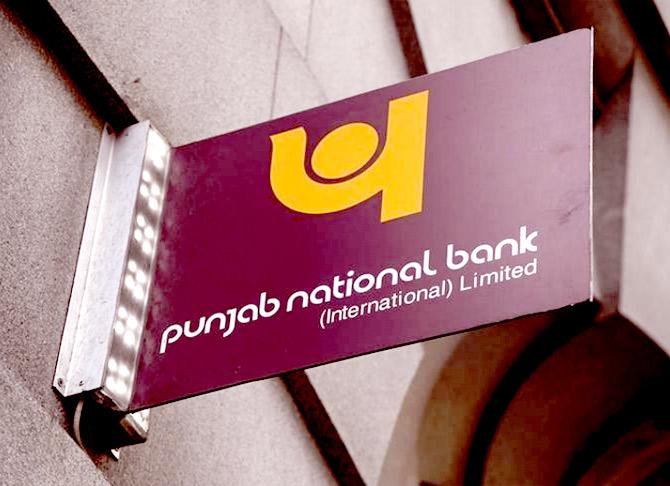Use of blockchain technology will ensure that banks will not be blindsided like in the case of the Nirav Modi-Mehul Choksi blowout at PNB, says Raghu Mohan.

How is accounting done in banks at the moment?
Who owes what to whom has been kept track of by double-entry book-keeping for centuries.
Under this method, separate ledgers are kept which keeps a record of all credits and debits.
The entire accounting world is based on this methodology.
But then only you and the party with whom you entered into a transaction gets to know of this.
How will blockchain change all this?
Blockchain is a completely decentralised ledger; all transactions can be viewed by the public.
Once a transaction is detailed, it remains there for good and can't be changed by anybody.
In effect, it's a digital ledger and completely democratic.
Of course, to be on blockchain, most current ledgers needs to meet its standards.
What's the Reserve Bank of India's stand on blockchain?
The Institute for Development & Research in Banking Technology set up by Mint Road came out with a white paper on the application of blockchain in banking and financial sector in January 2017.
Its shared insights on the kinds of blockchain, their implementation, digital currencies and ends with a proof-of-concept where a customer is able to secure a line of credit from a bank over hyper-ledger fabric-based interface.
This is used as the blockchain platform to maintain the distributed ledger -- the validating peers representing each bank run the fabric peer service.
Importantly, the white paper for the first time recommended the rupee can be put on blockchain and issued as a central bank digital currency.

Can blockchain prevent bank fund diversion by corporates?
The Indian Banks' Association has suggested the use of blockchain to monitor financial transactions of a borrower financed by a consortium of banks to prevent fund diversion, which is a major concern today.
The headache now is of a borrower moving funds from one bank to another and its end-use is not known.
In the absence of a central entity, it's not operationally feasible to securely and reliably track the movement of money between accounts maintained across financial institutions.
But a collaboration-based approach among them can enable monitoring the movement and perform the desired analytics thereon to detect anomalies as per mutually agreed rules and patterns.
Can a fraud of the kind that happened in Punjab National Bank be prevented?
Yes. The Society for Worldwide Interbank Financial Telecommunication (SWIFT) provides a network that powers financial institutions worldwide.
It launched the SWIFT KYC Registry in December 2014; more than 2,000 banks have already enrolled with it.
As on date, banks struggle to manage and integrate the data for know-your customer compliance to obtain a consolidated view of the customer.
This explains the popularity of central registries like the one managed by SWIFT which is now exploring the use of blockchain for the same.
Banks will not be blindsided like in the case of the Nirav Modi-Mehul Choksi blowout at PNB.
Will it lead to better current KYC protocols and processes?
Yes. The increasing cost of regulatory compliance is among every banker's top concerns, having to comply with regulation such as anti-money laundering and KYC.
Currently, every bank and financial institution has to perform the KYC process individually, and uploads the validated information and documents to a central registry that stores digitised data tagged to a unique identification number for each customer.
It's by using this reference number that banks can access the stored data to perform due diligence whenever customers request for a new service within the same banking relationship, or from another bank.
A blockchain-based registry would remove duplication of effort in carrying out KYC checks.
The ledger would enable encrypted updates to client details to be distributed to all banks in near real-time.
The KYC ledger would provide a historical record of all documents shared and compliance activities undertaken for each client.
This will form the evidence to be provided to the regulators.
It would be useful to identify entities attempting to create fraudulent histories.
The data within it could be analysed to spot irregularities or foul play -- directly targeting criminal activity.











 © 2025
© 2025